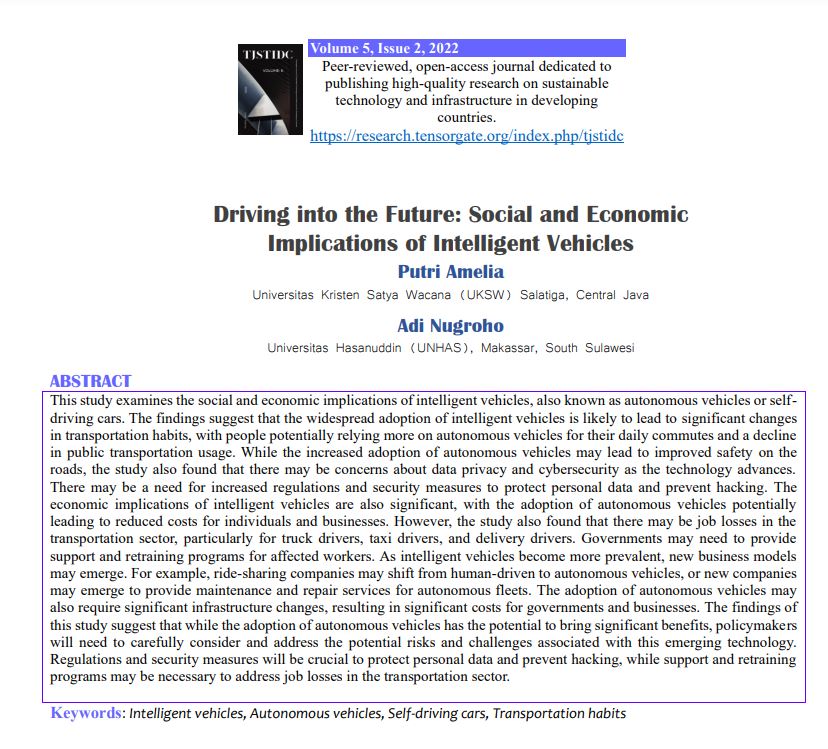Driving into the Future: Social and Economic Implications of Intelligent Vehicles
Keywords:
Intelligent vehicles, Autonomous vehicles, Self-driving cars, Transportation habitsAbstract
This study examines the social and economic implications of intelligent vehicles, also known as autonomous vehicles or self-driving cars. The findings suggest that the widespread adoption of intelligent vehicles is likely to lead to significant changes in transportation habits, with people potentially relying more on autonomous vehicles for their daily commutes and a decline in public transportation usage. While the increased adoption of autonomous vehicles may lead to improved safety on the roads, the study also found that there may be concerns about data privacy and cybersecurity as the technology advances. There may be a need for increased regulations and security measures to protect personal data and prevent hacking. The economic implications of intelligent vehicles are also significant, with the adoption of autonomous vehicles potentially leading to reduced costs for individuals and businesses. However, the study also found that there may be job losses in the transportation sector, particularly for truck drivers, taxi drivers, and delivery drivers. Governments may need to provide support and retraining programs for affected workers. As intelligent vehicles become more prevalent, new business models may emerge. For example, ride-sharing companies may shift from human-driven to autonomous vehicles, or new companies may emerge to provide maintenance and repair services for autonomous fleets. The adoption of autonomous vehicles may also require significant infrastructure changes, resulting in significant costs for governments and businesses. The findings of this study suggest that while the adoption of autonomous vehicles has the potential to bring significant benefits, policymakers will need to carefully consider and address the potential risks and challenges associated with this emerging technology. Regulations and security measures will be crucial to protect personal data and prevent hacking, while support and retraining programs may be necessary to address job losses in the transportation sector.

Downloads
Published
How to Cite
Issue
Section
License
Copyright (c) 2022 Tensorgate Journal of Sustainable Technology and Infrastructure for Developing Countries

This work is licensed under a Creative Commons Attribution-NonCommercial 4.0 International License.